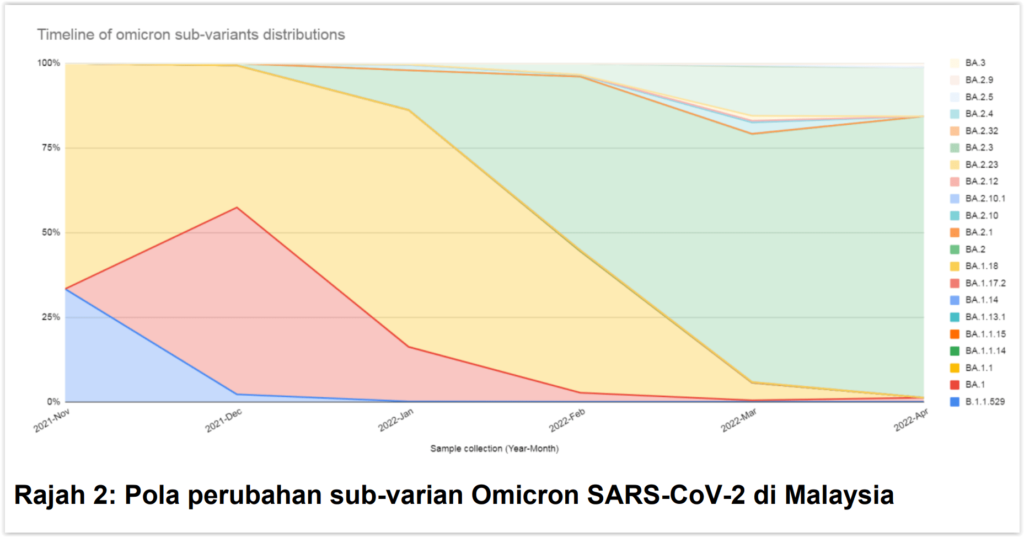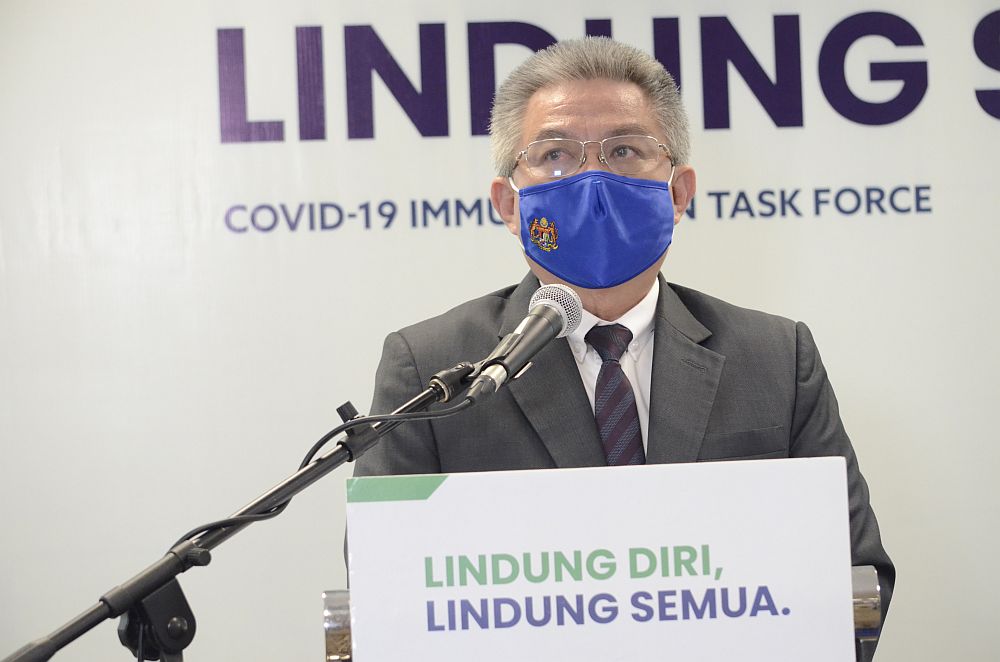KUALA LUMPUR, May 9 – The Ministry of Science, Technology and Innovation (MOSTI) is working to raise the national coronavirus genome sequencing rate to at least one per cent of Malaysia’s reported Covid-19 cases.
Currently, the country’s genomic surveillance rate is at less than one per cent, Science, Technology and Innovation Minister Dr Adham Baba said in a statement today.
The World Health Organization (WHO) recommends a sequencing rate of five to 20 per cent of each nation’s Covid-19 samples to be 95 per cent confident of detecting a variant in the population, especially in the early stages of a variant’s circulation.
“Clearly, the detection of emerging variants will require larger samples and higher rates of genomic surveillance than the detection of variants that have become widespread.
“Therefore, the genomic surveillance rate is directly related to our capacity for early detection of new variants of concern and the control of new clusters,” Dr Adham said.
Dr Adham announced the approval of RM15 million in additional funds under the National Covid-19 Immunisation Programme (PICK) for the country’s SARS-CoV-2 genomic surveillance project, which is entering its third phase.
He described Phase Three of the project as “crucial and strategic” to identify and monitor SARS-CoV-2 variants in Malaysia, especially variants such as Omicron and Delta.
According to MOSTI, a total of 15,565 samples have been sequenced, analysed, and uploaded onto the Global Initiative on Sharing Avian Influenza Data (GISAID) database.
Of the total samples, 7,245 samples or 46.55 per cent were identified as Delta variants, 6,374 samples (40.95 per cent) were Omicron, 283 samples (1.82 per cent) were Beta, and 33 samples (0.21 per cent) were Alpha.
Records on virus genome database GISAID, however, showed Malaysia sharing only 115 sequences, or 0.062 per cent of 185,627 reported Covid cases in the last 30 days, as of today. Malaysia’s most recent submission to GISAID was made three days ago.
In the last 90 days, Malaysia only sequenced and shared 0.326 per cent of 1,559,099 Covid-19 cases, with 5,084 sequences.
“Genomic information of the SARS-CoV-2 variants are important for the government to take appropriate and specific action to control and curb the spread of related variants. When the virus mutates, emerging new variants may have different capabilities including in terms of infectiousness, symptom severity, accuracy of diagnostic tests, as well as vaccine and therapeutic efficacy,” Dr Adham said.

Dr Adham said nearly all (about 99 per cent) of the samples sequenced in March and April 2022 were from the Omicron BA.2 lineage and its sub-lineage. The country’s sequencing patterns indicate that the Omicron BA.1 and BA1.1 lineage dominated in the early stages of the variant’s emergence in late 2021, but later shifted to the BA.2 lineage in January 2022.
The majority of Covid-19 cases sequenced in Malaysia last month were of the BA.2 variant, including a rise in the BA.2.3 sub-variant.
A consortium of 11 laboratories coordinated by the Malaysia Genome and Vaccine Institute-National Institutes of Biotechnology Malaysia (MGVI-NIBM) will be looking to sequence an additional 15,000 SARS-CoV-2 virus genomes, Dr Adham said.
The consortium of 11 laboratories consists of MGVI-NIBM, under MOSTI; the Institute for Medical Research (IMR), under the Ministry of Health; and 9 laboratories under the Ministry of Higher Education namely, Institute of Health and Community Medicine from UNIMAS, UKM’s Medical Molecular Biology Institute, UiTM’s Integrative Pharmacogenomics Institute, UM’s Tropical Infectious Diseases Research and Education Centre, University Malaya Medical Centre, USM Hospital, UPM Teaching Hospital, UMS’s Biotechnology Research Institute, and IIUM’s Sultan Ahmad Shah Medical Centre.








